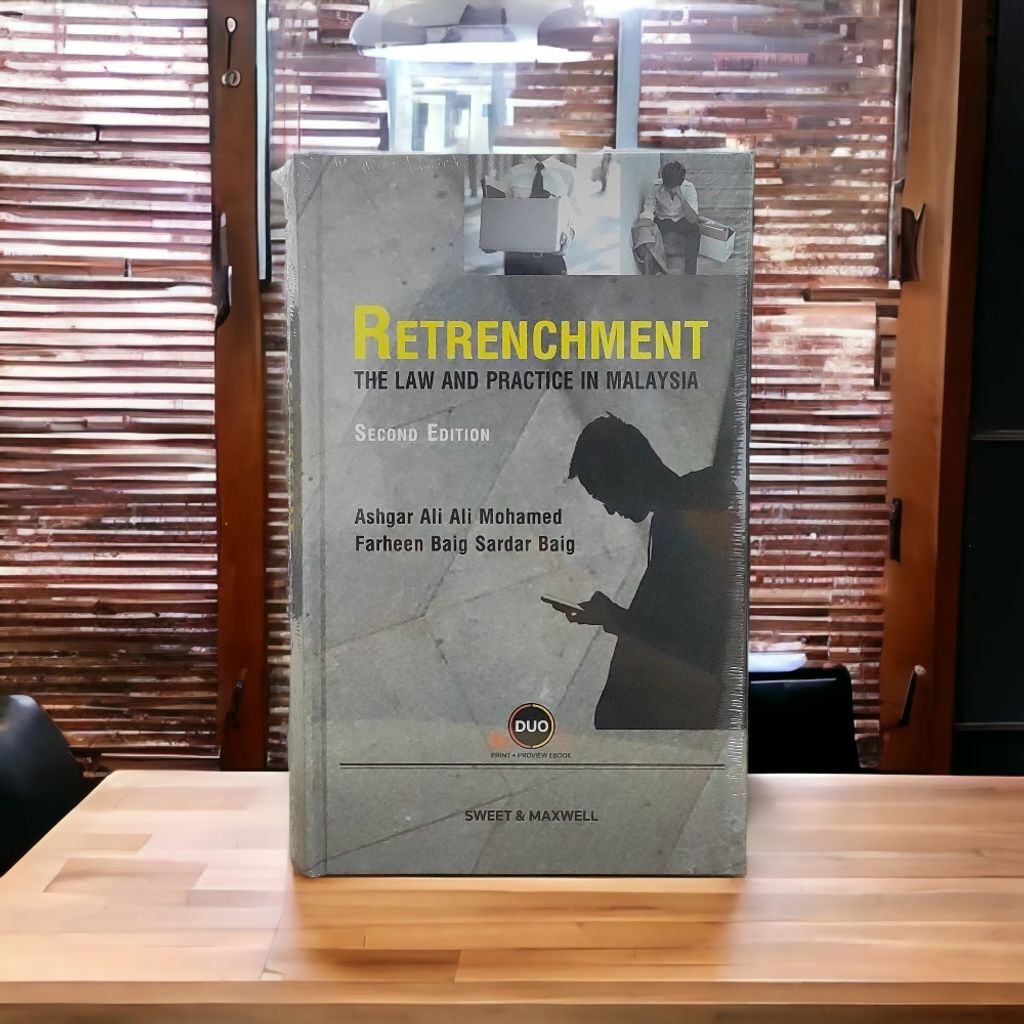Retrenchment: The Law and Practice in Malaysia, 2nd Edition
- Regular price
- RM 250.00
- Sale price
- RM 250.00
- Regular price
-
RM 250.00
Share
KEY FEATURES:
- comprehensive coverage
- practical and easy-to-read
- clear explanation of statutory requirements
- consideration of local and foreign cases as well as Industrial Court awards
- extensive coverage of Code of Conduct for Industrial Harmony
- discussion of retrenchment from the Islamic Law Perspective
The importance of job security in the form continuity in employment in an organisation up to the normal retirement age applies to the general working population. Unfortunately, job loss justified by the economic and business needs is an inevitable and painful consequences of a corporate restructuring or reorganisation process. Downsizing can happen when the business no longer requires the same number of employees it used to because the functions of the employee have either ceased or diminished to a significant extent.
The recent Covid pandemic, for example, has placed much strain on businesses, especially government-imposed lockdown and movement control across the globe make it difficult to secure new business or continue with ongoing projects. It is, however, essential that the termination of an employment contract on the grounds of redundancy must flow from justifiable grounds which must be bona fide and be untainted by any unfair labour practice.
This updated edition provides a comprehensive coverage on the recent and significant developments in the law and practice of retrenchment in Malaysia.
This title provides a complete discussion of
- the concepts and the causes leading to redundancy;
- retrenchment and lay-off;
- steps an employer should follow when there is a need to retrench;
- situations where a retrenched worker would be able to recover compensation;
- circumstances where a retrenched employee may contest the retrenchment exercise;
- preferential entitlement of an employee in the event the employer goes into liquidation;
- proposal for the setting up of a retrenchment fund and the mechanism of its functioning;
- retrenchment from the Islamic law perspective and the usage of Zakat money to assist unemployed Muslims until they secure new employment.
Written by authors who have wide experience in employment law, this book makes regular reference to statutory sources and cases from the courts to explain the working of the law and practise of retrenchment. This book will certainly provide much-needed information to employers, employees and their legal advisers.







